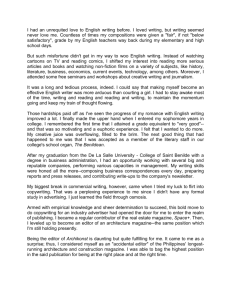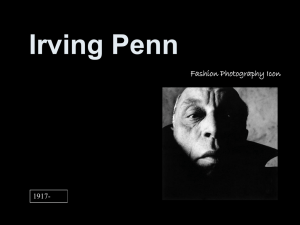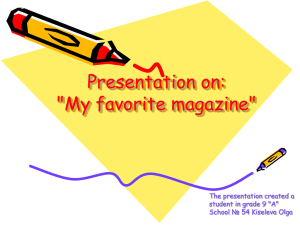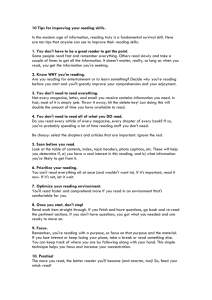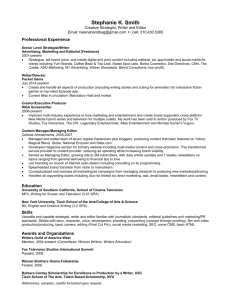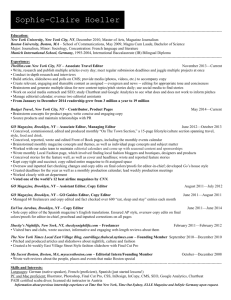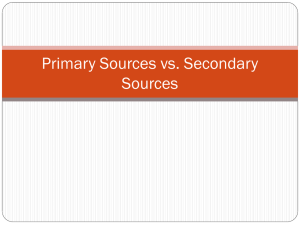on first opening a book or looking into a manuscript I listen
advertisement
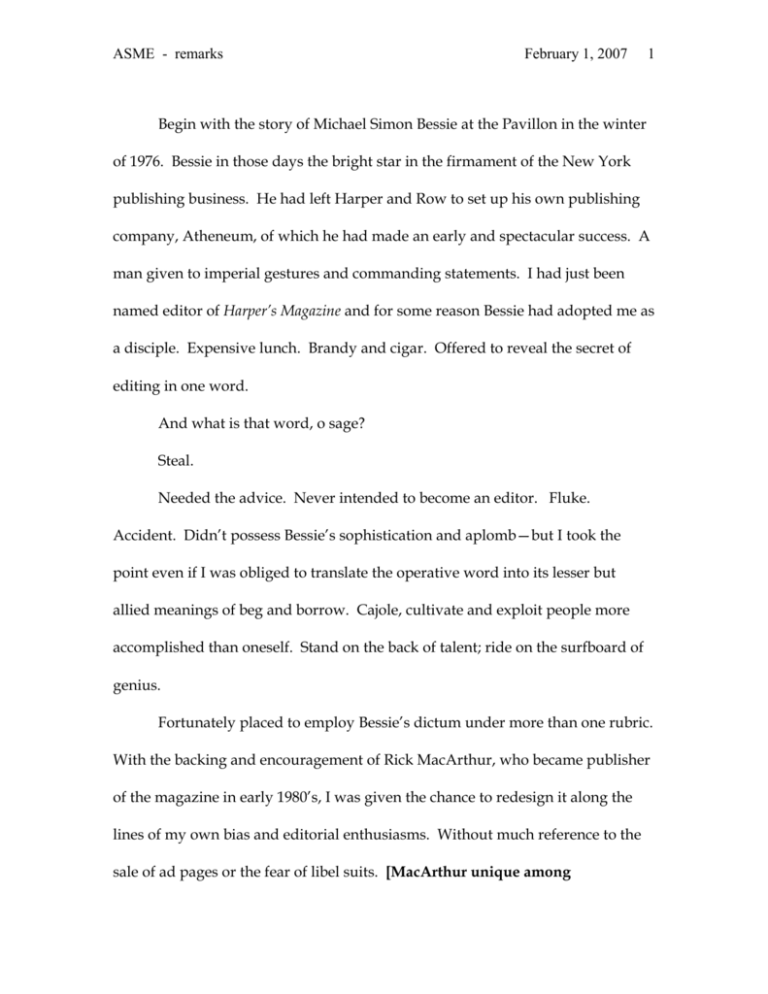
ASME - remarks February 1, 2007 1 Begin with the story of Michael Simon Bessie at the Pavillon in the winter of 1976. Bessie in those days the bright star in the firmament of the New York publishing business. He had left Harper and Row to set up his own publishing company, Atheneum, of which he had made an early and spectacular success. A man given to imperial gestures and commanding statements. I had just been named editor of Harper’s Magazine and for some reason Bessie had adopted me as a disciple. Expensive lunch. Brandy and cigar. Offered to reveal the secret of editing in one word. And what is that word, o sage? Steal. Needed the advice. Never intended to become an editor. Fluke. Accident. Didn’t possess Bessie’s sophistication and aplomb—but I took the point even if I was obliged to translate the operative word into its lesser but allied meanings of beg and borrow. Cajole, cultivate and exploit people more accomplished than oneself. Stand on the back of talent; ride on the surfboard of genius. Fortunately placed to employ Bessie’s dictum under more than one rubric. With the backing and encouragement of Rick MacArthur, who became publisher of the magazine in early 1980’s, I was given the chance to redesign it along the lines of my own bias and editorial enthusiasms. Without much reference to the sale of ad pages or the fear of libel suits. [MacArthur unique among ASME - remarks February 1, 2007 2 publishers.] Borrowed forms from other instruments of the media—the Harper’s Index, the Readings, the Annotation. But I thought of the magazine primarily as a vehicle for writers free to chase whatever beasts they happened to have in view. Didn’t press them into proving a preordained point or walking a company line. Suited my own temperament and experience. Borrowed heavily from the lessons learned from Otto Friedrich, who was the managing editor of The Saturday Evening Post when I was one of that magazine’s contract writers in the heyday of what was then called the new journalism. Otto joined a scholar’s love of learning with a journalist’s boundless curiosity. His books and interests—Manet, Von Moltke, Berlin, L. A. Free of cant and incapable of hypocrisy, Otto taught by example instead of by precept, patiently and with an unstinting kindness that he took a good deal of trouble to conceal behind a show of churlishness. He was as suspicious of adjectives as he was of politicians. He didn’t believe in flattering a writer with compliments that he associated with lipstick advertisements, and the best that could be hoped for was that the manuscript might pass inspection without attracting a scourge of marginal notes (“empty phrase,” “wrong word,” “absurdity”) that indicated not only a redrafting of the text but also the jettisoning of its presumed topic. Very early in my acquaintance with Otto, and much to the amusement of every other writer familiar with his marginalia, I conceived the ambition of one ASME - remarks February 1, 2007 3 day writing an article so flawlessly constructed that it would appear in print as it had appeared in typescript. The miracle never took place. Otto invariably deleted the lead paragraph (“ornamental,” “pointless,” “trite”) as well as the next three or four pages in which I had staged elaborate introductions of character and scene. Somewhere on page four or five he would discover the narrative line and there, impatiently pointing his pencil at a short declarative sentence uncluttered with adjectives, he would say, “Here. Begin here. With the story.” I took the lesson to heart. From an author in whose writing I could hear the sound of a human voice, I’ll listen to anything and everything, to reports of marvels in Samarkand or Winesburg, Ohio, to tall tales told about the wizards of Oz in Washington, to the news of giant ants standing watch over the treasure of Peru. [Rule about narrative and abstraction. Long and short space.] Within the profession of journalism I often have heard it said that the truth shall make men free, but as an editor I’ve learned that the meaning of the phrase doesn’t emerge from a collection of facts or a transfer of data, nor does it come with a declaration of war or the blessing of Christ; it’s synonymous with the courage that writers derive from not running a con game on the unique character and specific temper of their own minds, from trusting not only to luck but also to what they themselves think, know, have seen, can find language to express. [Millions of people think.] ASME - remarks February 1, 2007 4 Writing some years ago in Harper’s Magazine about the uses of the novel, the late Walker Percy put the proposition as follows: “The point is that all fiction can be used as an instrument of exploration and discovery…to discover, or rediscover, how it is with man himself, who he is, and how it is between him and other men.” Percy’ observation pertains to all writing, whether discursive essay or investigative report, comic memoir or angry letter to the editor, that seeks to tell a true story. The telling of a true story usually puts the writer at odds with some sort of wisdom in office—a New York publisher’s belief that literature died with Ernest Hemingway on a mountain in Idaho, the squeamishness of the corporate finance committee, Hollywood’s preference for fairy tales. I don’t imagine that it was ever easy or profitable to conduct explorations unauthorized by the Pentagon press office or unsupported by the judgment of Oprah Winfrey. Which is why as the magazine’s editor for twenty-eight years, I’ve been drawn to writers unafraid of the first-person singular, willing to think out loud, to experiment with narrative and cadence, bet the pot on a metaphor, take a chance with a line of inquiry that in other periodicals might be deemed illadvised or unkempt. Optimism an occupational hazard. Difficulty of the undertaking. Always playing against the house. Manuscripts. Opening Christmas presents. Adventure. Sending writers to places that I’m never likely to go. Rivers. Young writers. Fortunate not only in the publisher but ASME - remarks February 1, 2007 5 also in younger editors who worked for he magazine over the last thirty-odd years. Fun. Distinction between market and audience. Long correspondence with the magazine’s readers on topics as miscellaneous as the authorship of the Shakespearean plays, the moral bankruptcies of the Reagan and Clinton administrations, strange birds seen wading in the Platte River, the trouble with New York literary critic. The care taken with the composition of the letters (some of them printed out to a length of twelve typewritten pages) testified to the importance that their authors attached to the telling of a truer story. From the magazine’s correspondents I’ve learned that it is the joint venture entered into by writer and reader—the writer’s labor turned to the wheel of the reader’s imagination—that produces the energies of mind on which a society depends for its freedoms and from which it gathers the common store of its hope for the future. Several years ago the editorial page of the New York Times bestowed on itself the complacent compliment that "great publications magnify beyond measure the voice of any single writer." As often happens with the New York Times, the sentence employed the wrong verb. The instruments of the media multiply or amplify a voice, serving much the same purpose as a loudspeaker in a ballpark or a prison. What magnifies a voice is the force of its struggling to get at the truth. ASME - remarks February 1, 2007 6 As the editor of Harper’s Magazine I always was inclined to place the topics of the month or the season in some sort of an historical frame. Absent at least a passing acquaintance with the prior record, I wouldn’t know how to make sense of the newspapers, much less question the wisdom of what G. K. Chesterton once called “The small and arrogant oligarchy of those who merely happen to be walking about.” [Passion that I now mean to indulge.] I have in hand the preliminary design of a new journal, Lapham’s Quarterly, intended to strengthen the knowledge and sense of history among people apt to forget Goethe’s observation that he who cannot draw on 3,000 years is living hand to mouth. Conjugate Walker Percy’s dictum into the past tense, and the world in time becomes as good a place as any other, probably better than most, to discover or rediscover “how it is with man himself, who he is, and how it is between him and other men.” [I look forward to the exploration. Great Books made topical. What I’ve learned at Harper’s. Bessie. Steal from Gibbon, Caesar, Shakespeare, Twain.] ASME - remarks February 1, 2007 7
